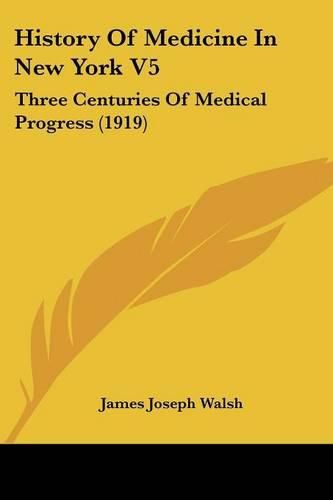Readings Newsletter
Become a Readings Member to make your shopping experience even easier.
Sign in or sign up for free!
You’re not far away from qualifying for FREE standard shipping within Australia
You’ve qualified for FREE standard shipping within Australia
The cart is loading…






Purchase of this book includes free trial access to www.million-books.com where you can read more than a million books for free. This is an OCR edition with typos. Excerpt from book: other by Dr. N. S. Davis, of Broome county, with reference to the necessity for a higher standard of qualifications on the part of candidates for licenses to practise. At the close of the debate, which developed conflicting ideas to such an extent that the entire subject was about to be postponed to the next annual meeting, Dr. Alden March, of Albany, suggested privately to Dr. Davis that possibly concert of action could be commanded in a National Medical Convention. Dr. Davis, a new member of the Society, unaware that any previous attempt had been made to assemble such a body, at once arose and submitted the following preamble and resolution: Whereas, It is believed that a National Convention would be conducive to the elevation of the standard of medical education in the United States; and whereas, there is no mode of accomplishing so desirable an object without concert of action on the part of the medical colleges, societies and institutions of all the States; therefore Resolved, That the New York State Medical Society earnestly recommend a National Convention of delegates from medical societies and colleges in the whole Union, to convene in the City of New York, on the first Tuesday in May, in the year 1846, for the purpose of adopting some concerted action on the subject set forth in the foregoing preamble. The following named were constituted a committee to carry the purpose into effect: Dr. N. S. Davis, Dr. James McNaughton, of Albany, and Dr. Peter Van Buren, secretary of the State Society. A circular issued by the committee, and correspondence growing therefrom, shows favorable responses from societies, colleges and individuals throughout the country, with these exceptions: The Medical College in Boston, and the two oldest colleges in Philadelphia, declined to tak…
$9.00 standard shipping within Australia
FREE standard shipping within Australia for orders over $100.00
Express & International shipping calculated at checkout
Purchase of this book includes free trial access to www.million-books.com where you can read more than a million books for free. This is an OCR edition with typos. Excerpt from book: other by Dr. N. S. Davis, of Broome county, with reference to the necessity for a higher standard of qualifications on the part of candidates for licenses to practise. At the close of the debate, which developed conflicting ideas to such an extent that the entire subject was about to be postponed to the next annual meeting, Dr. Alden March, of Albany, suggested privately to Dr. Davis that possibly concert of action could be commanded in a National Medical Convention. Dr. Davis, a new member of the Society, unaware that any previous attempt had been made to assemble such a body, at once arose and submitted the following preamble and resolution: Whereas, It is believed that a National Convention would be conducive to the elevation of the standard of medical education in the United States; and whereas, there is no mode of accomplishing so desirable an object without concert of action on the part of the medical colleges, societies and institutions of all the States; therefore Resolved, That the New York State Medical Society earnestly recommend a National Convention of delegates from medical societies and colleges in the whole Union, to convene in the City of New York, on the first Tuesday in May, in the year 1846, for the purpose of adopting some concerted action on the subject set forth in the foregoing preamble. The following named were constituted a committee to carry the purpose into effect: Dr. N. S. Davis, Dr. James McNaughton, of Albany, and Dr. Peter Van Buren, secretary of the State Society. A circular issued by the committee, and correspondence growing therefrom, shows favorable responses from societies, colleges and individuals throughout the country, with these exceptions: The Medical College in Boston, and the two oldest colleges in Philadelphia, declined to tak…